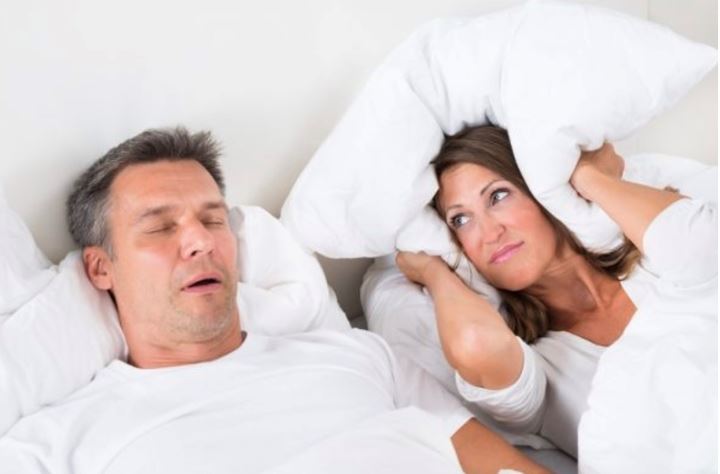Roughly 40% of adults have snoring problems in India. Snoring problems exist for many possible reasons. When the soft tissue behind your throat obstructs the airway, you are more likely to snore. This is the most common cause of snoring.
There are various ways to address your snoring problem. A common, effective, and reliable solution is to use an anti-snoring mouthpiece. These mouthpieces are specifically made to treat snoring problems at affordable prices, which means that most of us can afford them. If you read the top 5 anti-snoring mouthpiece reviews you will quickly understand why so many people have benefitted from them.
 Why you might need an anti-snoring mouthpiece
Why you might need an anti-snoring mouthpiece
If you have a snoring problem, or your partner tells you it is a problem, i.e., they cannot sleep because of the noise, a mouthpiece may be the answer. Not only will your partner get a good night’s sleep, your own sleep quality will improve.
There are two types of mouthpieces:
- Mandibular advancement devices.
- Tongue retaining devices.
We commonly refer to anti-snoring mouthpieces as mouthguards (also: mouth guard). Since the turn of the century, they have become very popular with people who have a snoring problem.
Mandibular Advancement Devices (MADs) move your lower jaw or mandible physically so that you can keep your tongue in position. This clears the airway of any obstruction and allows you to breather properly. Tongue Retaining Devices (TRDs) keep your tongue in place; they do not target your lower jaw.
Users want a mouthpiece that fits
Most snorers are particular about their anti-snoring mouthpiece. They must be comfortable and the right fit. If you have never slept with something in your mouth, it takes a little getting used to.
Mandibular advancement devices are molded to fit in your mouth. In other words, each MAD is designed for the structure of your teeth and the length of your jaw. Despite this, there are many more complaints about MADs than TRDs. Users mainly complain that they can be awkward and uncomfortable.
TRDs are cheaper than MADs and there are fewer complaints. However, unlike MADs, you cannot get TRDs in different sizes.
Suitability of anti-snoring mouthpieces
MADs
If you can afford to spend more and don’t mind getting a mold to determine the shape of the inside of your mouth, you will probably opt for a mandibular advancement device. MADs are also better for people who move their jaws a lot during sleep, move around excessively in bed, and sometimes suffer from jaw pain.
TRDs
If you are on a tight budget and size is not such a big issue for you, you will probably opt for a tongue retaining device. We also call it a tongue stabilizing device. If you prefer a lighter mouthpiece, this device is for you.
Although MADs are better for people with occasional jaw pain, in cases of severe pain you may find that TRDs are better.
MADs vs. TRDs – pros and cons
Advantages:
- These mouthpieces are significantly cheaper than other anti-snoring treatments available today.
- You are less likely to develop infections in your mouth. Complications resulting from, for example, surgical procedures are more common. However, you must keep your mouthpieces clean – follow the manufacturer’s instructions.
- You do not need a doctor’s prescription to buy and use an anti-snoring mouthpiece. In fact, you don’t even need to see a doctor, dentist, or sleep specialist.
- They usually work. If you use an MAD or TRD, you will probably solve your snoring problem.
- They are easy to maintain at minimal cost. MADs and TRDs are easy to clean and require no other maintenance. Make sure you keep it away from dust and exposure to germs when you are not using it. Keep it in a box or plastic container.
Disadvantages:
- Some people who use a mouthpiece suffer from dry mouth.
- A small percentage of users complain of swelling in the lower jaw.
- You may drool a lot while you sleep.
- According to some publications and journals, some users may develop mouth ulcers.
- Most devices do not last more than about six months to one year. Some may last up to two years.
Conclusion
If you have a snoring problem, you should first go and see your doctor. Snoring is sometimes a sign that there is something else wrong with your health. Your doctor needs to rule out any serious illnesses or conditions.
Snoring may be a warning sign of obstructive sleep apnea (OSA). People with OSA repeatedly stop and start breathing during sleep. Untreated OSA can lead to atrial fibrillation (irregular heartbeat), stroke, heart attack, high blood pressure, and type 2 diabetes. OSA can also affect your quality of life, causing poor performance at school or work.

